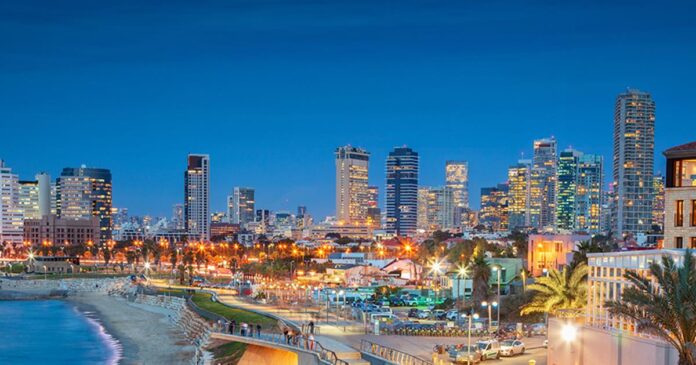Israeli musician Shir Meir lives in a Tel Aviv hostel room with three friends, sharing a kitchen and bathroom with others as they struggle to get by in the world’s most expensive city.
“We got to a point of despair” with housing prices, the 22-year-old said. “There’s no normal apartment for young people who are starting their lives in this city.”
Meir is among nearly half a million residents of the coastal metropolis who are dealing with skyrocketing living costs.
- What the world may learn from Israel’s launch of the Covid-19 vaccine booster
- Palestinian president pays $42k to family of terrorist who killed Israelis after Biden restarted aid
Israel’s cultural and economic capital is now more expensive than Paris, Singapore, Zurich, Hong Kong and New York, according to an authoritative ranking compiled by the Economist Intelligence Unit.
It climbed the list partly due to the strength of the national currency, the shekel, against the dollar, as well as increases in prices for transport and groceries.
Neighbouring Syria’s capital Damascus meanwhile was listed the world’s cheapest city to live in.
Sitting on a bench on a central Tel Aviv shopping street lined with boutiques and gleaming renovated apartments, Janine Vosburgh said she now avoided luxuries like restaurants and cafes.
“We live in overdraft,” the 70-year-old said, pausing as a passer-by begged her for money.
Strong shekel
Vosburgh, who runs the Israel Multiple Sclerosis Society, said some patients could not afford their drugs. But the former Manhattan resident told AFP she could not feel at home in any other Israeli city.
“Tel Aviv’s ideas and the freedom and the consideration for everybody regardless of age, gender, religious affiliation… it suits my way of thinking,” she said. High cost of living has been a persistent issue in Tel Aviv.
In 2011, a “tent revolution” saw young Israelis furious at sharp rises in rents erect shelters on the upmarket Rothschild Boulevard in the heart of the city. A decade later, the tents are gone but the soaring prices have remained.
“The protest had a temporary effect,” said Asher Blass, former chief economist at the Bank of Israel. Tel Aviv’s ranking this year is primarily due to the strong local currency, he said. Last month, the shekel reached a 25-year high against the dollar. As the cost of housing and other basics like groceries has increased, wage growth has been uneven.
“A lot more needs to be done in opening up competition for goods like agricultural produce” to bring down prices, Blass said.


